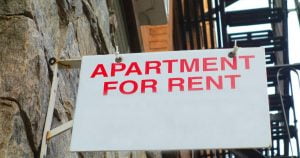NYC Co-op Sublet Policies, Rules, And Fees in 2025
Go Back To Previous PageCo-op Sublet policies & rules are tricky. New York City is a place where rentals always seem to pop up. If you’ve ever rented a sublet, you already know this is a hot move for people who want to maximize their income. This is especially true if you are part of a co-op community. Once you’ve bought a co-op, it’s yours. However, the board still has much say on what it can do. Have you ever wondered if you can sublet (or Airbnb) your place? Can the co-op evict a tenant in the case of an illegal co-op sublet? It’s not as simple as you think.
want to maximize their income. This is especially true if you are part of a co-op community. Once you’ve bought a co-op, it’s yours. However, the board still has much say on what it can do. Have you ever wondered if you can sublet (or Airbnb) your place? Can the co-op evict a tenant in the case of an illegal co-op sublet? It’s not as simple as you think.
Every single co-op has different rules.
It’s important to remember that every single co-op has different rules, bylaws, and fees. We’re generalizing when discussing the typical experience of co-op owners who want to sublet in NYC. If you own a co-op, the content in our article may or may not represent what you deal with. The best thing you can do for yourself is to read your co-op’s rulebook or ask board members about their policies.
When working with real estate, details are always a must. Otherwise, you might wage a legal battle during the co-op’s board meetings.
Where Can You Find Out Your Co-Op’s Subletting Policies?
Owners can find subletting policies in the rulebook of co-ops, which means you can check your copy or ask the co-op board. If you are working with a broker, you might ask them. Many brokers and real estate agents know more prominent co-ops’ policies.
Can You Sublet Your Co-op?
You can in most cases, but it’s hard to tell. Co-ops have various policies, and most NYC co-ops are owner-occupied.

A row of primarily old and new residential buildings and skyscrapers in Chelsea, New York City
As a result, a decent percentage of co-ops won’t allow you to sublet it at all. In some cases, they will allow you to sublet it for a maximum of two to four weeks at a time. In other cases, they will still let you do whatever you want with it if they get a cut.
Are you wondering what the most likely scenario is? The most common co-op sublet policy among New York City co-ops is that they will allow you to do it for up to two years, provided that you’ve lived in the apartment for one to three years at minimum.
This is where asking the co-op board directly (or reading the rulebook) remains the most brilliant move. You’ll discover what you can and cannot do with your potential co-op sublet.
How Long Are You Allowed To Let Your Renter Live In Your Co-op?
Generally speaking, co-op owners who are allowed to sublet are discouraged from renting their co-ops for short-term stays. This means Airbnb probably isn’t going to work out. Typically, you must have a long-term lease with your subletter. So, expect to have lease terms of six months to a year.
Co-ops can have both minimum and maximum lease lengths. Oddly enough, minimum and maximum terms are one year long, so try to plan for a single-year lease.
How Long Are You Allowed To Let Sublet Your Co-op?
How long you can turn your co-op into a sublet gets a little dicey. Co-ops that enable you to sublet their units often let you do it for 1 to 3 years at a time. Some co-ops allow owners to sublet it for a maximum of five years for the duration of ownership.
you do it for 1 to 3 years at a time. Some co-ops allow owners to sublet it for a maximum of five years for the duration of ownership.
If the co-op does not implement these policies, it will quickly attract “vulture investors,” who do nothing but snap up units to rent them out at a higher price. These rules ensure the community stays among New Yorkers who want to live and work there.
How Subletting Works With Most Co-Op Communities
Are you ready to sublet your co-op properly? If so, you must go through your co-op board’s process for subletting if it’s allowed. Here’s what you should prepare to do:
- You must alert the board to your intent to sublet at least a month before you do it. You usually need to do it in writing, as a phone call might not suffice for records.
- Give the board information about the tenant. Most boards want the tenants’ contact information, ID, and information about the terms and rent price. Therefore, the co-op might have the right to approve or reject the subletter. Each building determines a specific Co-Op’s pet policy.
- Increase your homeowner’s insurance or co-op insurance. You will want to do this just in case the renter wrecks something.
- Pay the NYC rental fees to the board as your tenant moves in and lives there. We’ll get into this later.
- Alert the tenant to the policies involving your co-op. Every tenant must know the basics, such as trash removal, calling when stuff breaks, and quiet hours.
How Do Co-Op Subletting Fees Work?
When you sublet a co-op unit, you’re doing two things that aren’t cool with the co-op. First, you’re bringing in people who weren’t approved by the board and pose a risk to the co-op. Second, you’re renting out your property, which means you’re making money off a property you are supposed to live in. That’s a lot for a co-op, so they will want a cut.
Why Do Co-Ops Charge Subletting Fees?
Co-ops charge fees because it’s a significant risk for them to take. Those fees help cover anything the subletter breaks and any trouble the co-op could cause. It is a way for the co-op to get more money toward new amenities.
How Do Co-Ops Determine Subletting Fees?
These fees vary significantly from community to community. Co-ops can calculate their fees in several different ways.
The most common include:
- Maintenance Increases. Some add an additional 25 to 30 percent to the monthly maintenance fee for the duration of the sublet.
- Upfront Size-Base Fee. Other co-ops may ask for money upfront. This usually is a set fee per square foot of your co-op, billed annually for as long as the subletting continues. Some also have a scale depending on the number of bedrooms.
- Increasing Fee. This upfront fee increases with each year you sublet the co-op, usually from 10 to 15 percent to 20 or 25 percent. For example, it could represent $1000 in year one; the next year, it’ll be $1500.
- Fixed Annual Fee. Some co-ops choose to charge a flat fee every year that the co-op is sublet, which means studios, one-bedrooms, two-bedrooms, and three-bedrooms will all have the same fee.
What Happens If You Sublet Your Co-Op Illegally?
It’s true. Illegal sublets, including short-term leases, are on the rise and happen often. If someone accidentally rents from an illegal subletter, they’re usually asked.

To leave. They may also leave of their own accord because they don’t want an eviction on their record and choose to sue the subletter. However, a lawsuit from an angry ex-tenant is the least of your concerns.
If you sublet when you’re not supposed to, the following can all occur, depending on what your co-op board’s rules are:
- You can get a hefty fine. For instance, co-ops will charge double the monthly maintenance fee for every month you’ve sublet illegally, which can add up to tens of thousands of dollars.
- The co-op may have the right to sue you. In some cases, you might also get a lawsuit for any damage done to the building by the tenant. This can include fines from noise complaints, damage from a fire in the lobby, or whatever other chaos they caused.
- In extreme cases, it can even lead to eviction. You might own your unit, but you can still get kicked out if you refuse to abide by the bylaws. Co-op foreclosures remain awful on your record, so this is usually only left for repeat offenders.
Conclusion
If you want to sublet your policy to a co-op, think long and hard before doing it. It’s not always a good move. However, having the board’s approval and being able to afford the fees is a great way to make money and improve your apartment’s return.
Talking to a good broker can help you navigate it, so give NestApple a call today.


